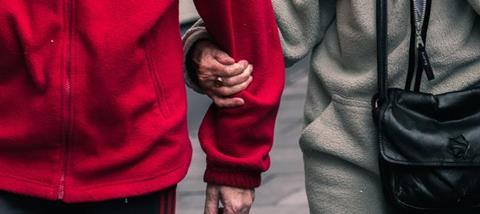
What is the definition of a young carer?
In a nutshell a young carer is someone under 18 who helps to care for a member of their family. That could be a parent, grandparent or sibling.
It’s often to do with disability or illness but there are cases where the issue is misuse of drugs or alcohol. One of the significant changes we’ve seen over the last five years is the change in the number of young carers caring for somebody with a mental health issue. We had a lot of young people caring for those with a physical disability but now we have just as many caring – often for an adult – where they have difficulties with their own mental health.

They may be doing all sorts of household tasks like cooking, cleaning or shopping. They might be doing physical care tasks like helping them get round the house or get dressed. Sometimes they are even helping with personal care, such as washing.
How many young carers are there in the UK?
Number crunch
There are more than 244,000 young carers in the UK
The average age of a young carer is 12
Over 13,000 young carers care for up to 50 hours a week
Young carers are more likely to be bullied by their peers
Young carers are more likely to live in low income families
(Spurgeons)
The reality is we don’t know for definite how many young carers there are. The 2011 census data is used frequently, which indicated that there are 160,000 young carers. But it’s widely acknowledged that this is not a true reflection.
It’s quite an old bit of data and a lot has changed since then. Also, some families would worry about writing down that their son or daughter is caring for them because they fear the repercussions of that. Some people don’t even recognise that their son or daughter is a young carer.
The BBC and the University of Nottingham did a survey last year of about 1,000 young people across England, but when you look at extrapolating that across the whole population it is estimated that there is likely to be 800,000 secondary age young carers.
Why are you passionate about this?
The young carers I meet are some of the most remarkable young people. Often their caring role can be a positive experience. They have skills that their peers don’t have, they are often very mature. However, without the right support the caring role can have a negative impact on their lives.
What support is there from the government?
There is a statutory requirement to give young carers the right to an assessment of their support needs. Once those needs have been identified, support can be placed around that family. Very often local authorities will commission that out to organisations like us who will work with the family, do the assessment and look at what their support needs are. But the reality is there just isn’t enough resource out there for the amount of young carers in our communities.
Our mantra is that young carers are everybody’s responsibility.
How can we spot a young carer in our groups?
Sometimes tiredness is a sign. Young carers can be up later than normal or getting up very early. They might even be neglecting eating themselves because their priority is to make sure that the person they are looking after is eating, so they might be hungry. Another sign might be that they’re not able to get to things like events or trips.
Bullying can be quite an issue for young carers. Not always, but some young carers feel very isolated because they can’t socialise as their peers can. They might not have the same friendship networks. Self-esteem and confidence can sometimes be an issue.
How can youth and children’s workers support young carers?
Open up a conversation with them. It’s not prying if the young person wants to talk about it. Point out to them that there are organisations that can support them and their family. Let them know they have the right to an assessment to see what support can be given to them.
Put that in a way they can understand. For example, if you know a young person who has a parent with an illness or disability, simply ask: “How does that feel for you?”. Ask if they help their mum or dad. You can do fairly simple checks that wouldn’t feel intrusive, just to get a sense of whether they are caring and how they feel about that.
If you don’t know where the statutory support is in your area then Google it. It might be a combined area so it might not be very close by. Could you give them lifts or practical help to access that support?
We work closely with schools because they see young people on a day-to-day basis. That can be really helpful.
The one thing that young carers consistently tell us makes a difference to them is regular groups they can attend where other young carers are. Where they can just be themselves, have fun, socialise and not have that caring responsibility for a couple of hours.
Our mantra is that young carers are everybody’s responsibility. We can’t do this alone, so the more organisations that are aware of young carers and willing to provide services for them the better. Even if it’s just a space for them to be, that makes such a difference.
Spurgeons have been supporting young carers for over 20 years. They currently support over 900 in the UK.






































